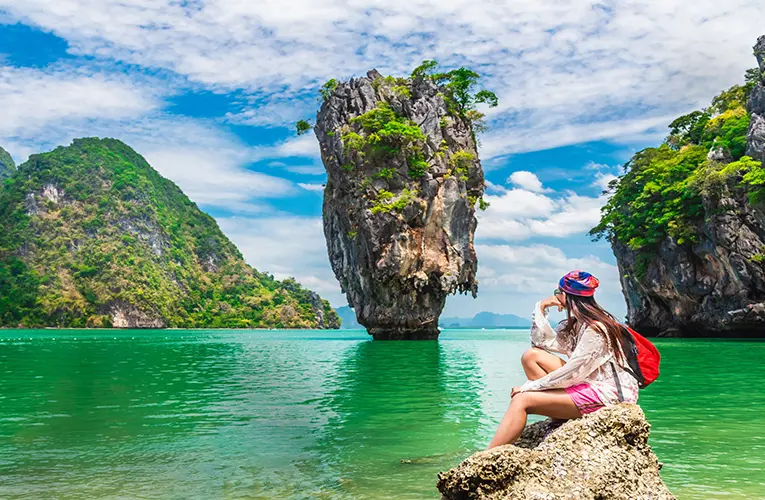“Travel Therapy: Healing Journeys to Recharge and Renew”
### “Travel Therapy: Healing Journeys to Recharge and Renew”
Travel therapy is a transformative concept that combines the rejuvenating power of travel with therapeutic practices to help individuals recharge, heal, and find renewed balance in their lives. By immersing yourself in new environments, cultures, and experiences, you can address physical, emotional, and mental well-being. This guide explores how travel can be used as a form of therapy, offering tips for planning healing journeys and examples of destinations and practices that promote renewal.
—
### 1. **Understanding Travel Therapy**
#### **1.1 What is Travel Therapy?**
– **Definition:** Travel therapy involves using travel as a means to improve mental, emotional, and physical health. It leverages the positive effects of changing environments, engaging in new activities, and disconnecting from daily stressors.
– **Purpose:** To rejuvenate the mind and body, gain perspective, and cultivate personal growth through unique travel experiences.
#### **1.2 Benefits of Travel Therapy**
– **Stress Reduction:** Escaping daily routines and stressors can lower cortisol levels, reduce anxiety, and improve overall mood.
– **Mental Clarity:** Exposure to new environments can provide a fresh perspective and enhance mental clarity and creativity.
– **Emotional Healing:** Immersion in different cultures and experiences can foster emotional resilience and promote personal growth.
—
### 2. **Planning Your Healing Journey**
#### **2.1 Identifying Your Goals**
– **Clarify Intentions:** Determine what you hope to achieve through your travel therapy. Goals might include stress relief, emotional healing, personal development, or simply relaxation.
– **Choose Activities:** Select activities that align with your goals, such as mindfulness practices, outdoor adventures, or cultural immersion.
#### **2.2 Selecting a Destination**
– **Nature and Wilderness:** Destinations known for their natural beauty and tranquility can provide a calming and restorative environment. Examples include national parks, remote islands, and mountain retreats.
– **Cultural Immersion:** Engage with cultures different from your own to gain new perspectives and enrich your emotional well-being. Consider destinations with rich cultural traditions and practices.
– **Wellness Retreats:** Specialized retreats focused on wellness and personal development offer structured programs that incorporate therapy, meditation, and holistic practices.
#### **2.3 Preparing for Your Trip**
– **Research and Planning:** Gather information about your destination, including accommodation, local customs, and activities. Plan your itinerary to include a balance of relaxation and engagement.
– **Self-Care Pack:** Bring items that support your well-being, such as a journal, meditation tools, comfortable clothing, and any necessary medications.
– **Health and Safety:** Ensure you are up-to-date on vaccinations, travel insurance, and safety precautions relevant to your destination.
—
### 3. **Healing Activities and Practices**
#### **3.1 Mindfulness and Meditation**
– **Mindfulness Retreats:** Attend retreats that focus on mindfulness practices, such as meditation, yoga, and deep breathing exercises. Locations like Bali, Thailand, and India offer numerous options.
– **Nature Walks:** Engage in mindful walking or hiking in natural settings to connect with the environment and promote mental clarity.
#### **3.2 Wellness and Spa Treatments**
– **Spa Retreats:** Explore destinations known for their spa and wellness facilities. Treatments such as massages, hydrotherapy, and aromatherapy can aid in physical and emotional healing.
– **Therapeutic Practices:** Consider incorporating practices like acupuncture, Reiki, or Tai Chi, which are available in various wellness centers around the world.
#### **3.3 Cultural and Creative Experiences**
– **Cultural Immersion:** Participate in local cultural activities, workshops, and festivals to foster a deeper connection with the destination and its people.
– **Creative Outlets:** Engage in creative activities such as painting, writing, or cooking classes to express emotions and stimulate mental well-being.
#### **3.4 Adventure and Physical Activity**
– **Outdoor Adventures:** Activities such as kayaking, mountain biking, or rock climbing can be both invigorating and therapeutic, providing physical exercise and a sense of accomplishment.
– **Mind-Body Activities:** Practices like yoga and tai chi can combine physical movement with mindfulness, promoting overall well-being.
—
### 4. **Examples of Healing Journeys**
#### **4.1 The Zen Retreat in Kyoto, Japan**
– **Experience:** Participate in Zen meditation sessions, traditional tea ceremonies, and serene temple stays in Kyoto’s tranquil environment.
– **Benefits:** Deepen mindfulness practice, engage with Japanese culture, and find peace in a serene setting.
#### **4.2 Wellness Retreat in Ubud, Bali**
– **Experience:** Enjoy a holistic wellness retreat featuring yoga, meditation, detox programs, and spa treatments amidst Bali’s lush landscapes.
– **Benefits:** Detoxify the body, rejuvenate the mind, and experience the healing power of Bali’s natural environment.
#### **4.3 Adventure Therapy in Patagonia, Chile**
– **Experience:** Embark on trekking and outdoor adventures in the stunning landscapes of Patagonia, including hiking in Torres del Paine National Park and exploring glaciers.
– **Benefits:** Connect with nature, challenge yourself physically, and gain a fresh perspective on life.
#### **4.4 Creative Escape in Provence, France**
– **Experience:** Participate in art and cooking workshops, explore picturesque villages, and enjoy the beauty of the French countryside.
– **Benefits:** Engage in creative self-expression, relax in a charming setting, and experience French culture.
—
### 5. **Incorporating Travel Therapy into Your Life**
#### **5.1 Regular Retreats and Getaways**
– **Frequency:** Consider scheduling regular retreats or weekend getaways to maintain a balanced and stress-free lifestyle.
– **Mini-Breaks:** Even short escapes to nearby destinations can provide valuable mental and emotional benefits.
#### **5.2 Mindful Travel Practices**
– **Intentional Travel:** Approach travel with mindfulness and intentionality, focusing on experiences that align with your well-being goals.
– **Post-Trip Reflection:** Reflect on your experiences and insights gained during your trip, and integrate any positive changes into your daily life.
#### **5.3 Sharing Your Experience**
– **Inspire Others:** Share your travel therapy experiences and insights with others to encourage them to explore healing journeys.
– **Community Engagement:** Participate in or create communities focused on travel therapy and wellness to connect with like-minded individuals.
—
### 6. **Conclusion**
#### **6.1 Summary of Key Points**
– Recap the concept of travel therapy, its benefits, and various healing practices and destinations.
– Highlight the importance of planning and intentionality in creating a meaningful and restorative travel experience.
#### **6.2 Encouragement to Explore**
– **Embrace Healing Journeys:** Encourage readers to explore travel therapy as a way to recharge and renew their well-being.
– **Stay Open-Minded:** Approach each journey with openness and curiosity to fully experience the therapeutic benefits of travel.
#### **6.3 Final Thoughts**
– **Personal Growth:** Emphasize the potential for personal growth and transformation through travel therapy.
– **Ongoing Exploration:** Encourage continued exploration of new destinations and experiences that contribute to overall well-being and fulfillment.
—
This guide provides a comprehensive overview of travel therapy, offering practical advice, examples of healing journeys, and tips for incorporating travel into a balanced and rejuvenating lifestyle. By embracing the therapeutic benefits of travel, individuals can enhance their physical, emotional, and mental well-being while discovering the world.









